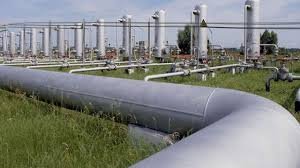The Nigerian National Petroleum Company Limited (NNPC Ltd.) has confirmed that the Ajaokuta-Kaduna-Kano (AKK) Gas Pipeline has successfully crossed the River Niger.
According to the NNPC’s Group Chief Executive Officer, Bayo Ojulari, this boosts the hope of the project’s completion by Q4 2025. He noted the feat was achieved through effective and innovative contract reengineering and industry collaboration especially the use of trenchless technology to avoid environmental disruption.
In a related development, he also disclosed that for the first time in a long while, the nation enjoyed 100% crude oil pipeline availability throughout June 2025, which helped to boost crude oil production. He, however, called for more investments to boost production, adding that NNPC Ltd. has been able to turn the narrative around by consistently meeting its cash-call obligations to Joint Venture operations. He said the Petroleum Industry Act (PIA 2021) has placed NNPC Ltd. in a good position to live up to its responsibility of leading the industry in financing projects.
AKK Gas Pipeline Project
The Ajaokuta–Kaduna–Kano (AKK) gas pipeline project which runs from Ajaokuta in Kogi State through Abuja and Kaduna to Kano has a capacity to transport up to 3.5 billion standard cubic feet of gas per day.
The project is being executed under a public-private partnership framework, with engineering, procurement, and construction (EPC) contracts awarded to a consortium of OilServ and Oando, as well as Brentex and China Petroleum Pipeline Bureau with an estimated to cost of $2.8 billion. It is being funded primarily by Chinese financial institutions (85%) and the Nigerian National Petroleum Company Limited (NNPC Ltd) (15%).
Once completed, the AKK pipeline is expected to deliver about 2.2 billion cubic feet of gas per day to power plants and industries in Abuja, Kaduna, and Kano, which would in turn significantly improve electricity supply and boost economic activities in northern Nigeria. This is expected to add up to 3,600 megawatts of electricity to the national grid, reduce gas flaring, and stimulate industrialization.
On the long run, the AKK pipeline would contribute to a larger Trans-Nigeria Gas Pipeline project and the proposed Trans-Saharan Gas Pipeline that could eventually export Nigerian gas to Europe.

























